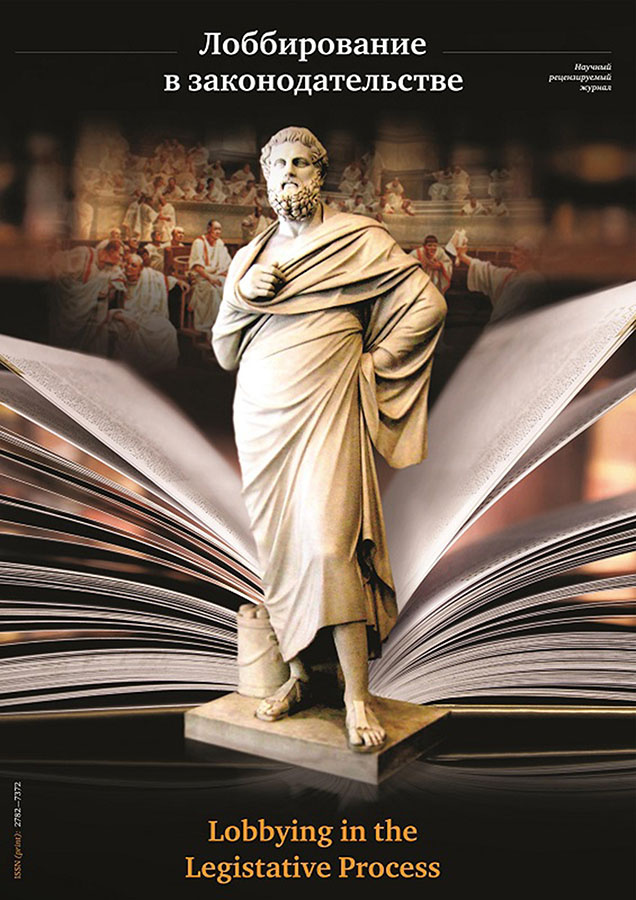Artificial intelligence and trademarks: the dichotomy of trademark and copyright law
- Autores: Pakshin P.K.1
-
Afiliações:
- HSE University
- Edição: Volume 4, Nº 3 (2025)
- Páginas: 95-103
- Seção: Private law (civil)
- URL: https://journals.eco-vector.com/2782-7372/article/view/695421
- DOI: https://doi.org/10.33693/2782-7372-2025-4-3-95-103
- EDN: https://elibrary.ru/AFLYCV
- ID: 695421
Citar
Texto integral
Resumo
The purpose of the research. The article reveals the legal problems of using AI in creating trademarks. The next chapter of the technological revolution is unfolding before our eyes, with AI already testing its mettle in a field traditionally considered a purely human one – creativity. The questions to be answered are “What happens when an algorithm ‘gives birth’ to a trademark?” and “Who is its creator?”. The answer is to delve deeper into the tangle of legal and ethical dilemmas that arise between digital intelligence and intellectual property. The article examines the challenges associated with the creation, and state registration of AI-generated means of individualization. Results. When creating a trademark without using GenAI, the author has property and non-property rights. In the case of AI, registration of a trademark is possible, but the copyright protection does not arise due to the violation of the creativity criterion: only property rights appear, which leads to a decrease in the possibilities of protecting the rights of the creator. The use of protected data to train AI, coupled with the potential for AI-generated output to infringe on existing works, creates risks for third-party rights.
Palavras-chave
Texto integral
Sobre autores
Pavel Pakshin
HSE University
Autor responsável pela correspondência
Email: ppk-center@mail.ru
ORCID ID: 0009-0006-2829-0267
Código SPIN: 6333-2450
postgraduate student
Rússia, MoscowBibliografia
- Garanina O.D., Egorov S.V. Philosophical Prerequisites for Intellectual Property Research. Scientific Bulletin of the Moscow State Technical University of Civil Aviation. 2007. No. 113. Pp. 59–65. (In Rus.). EDN: KVCTYD.
- Ilyin A.V. On legal science and legal craft. Statute. 2024. No. 9. Pp. 91–98. (In Rus.)
- Kalyatin V.O. Definition of the subject of rights to the results of intellectual activity created using Artificial Intelligence, and its impact on the development of civil legislation. Law. Journal of the Higher School of Economics. 2022. Vol. 15. No. 4. Pp. 24–50. (In Rus.). doi: 10.17323/2072-8166.2022.4.24.50.
- Koroleva A.G. Problems of assessing the protectability of trademarks incorporating works of authorship. Journal of the Intellectual Property Court. 2021. No. 3 (33). Pp. 185–193. (In Rus.)
- Nikitin G.M., Triandafilidi N.G. The philosophical doctrine of plato’s two worlds. Forum of Young Scientists. 2018. No. 11-2 (27). Pp. 222–223. (In Rus.)
- Sklovsky K.I. Property in civil law. 5th ed., rev. Moscow, 2010. 893 p.
- Fedotov M.A. Anthropocentrism as a meta-principle of intellectual property law. Journal of the Intellectual Property Court. 2025. No. 1 (47). (In Rus.). doi: 10.58741/23134852_2025_1_1.
- Fogelson Y.B. Civil law through the prism of sociological jurisprudence. Statute. 2019. No. 4. Pp. 160–161. (In Rus.)
- Shefas P.A. Unknown owner of a famous brand. On the need for a liberal approach to trademarks. Journal of the Intellectual Property Court. 2020. No. 2 (28). (In Rus.)
- Senftleben M. The unproductive “Overconstitutionalization” of EU copyright and trademark law. In: Fundamental rights rhetoric and reality in CJEU jurisprudence. 2024. Pp. 1471–1514.
Arquivos suplementares









